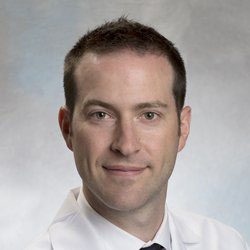Each year, during the month of June, we recognize Men’s Health Month and Men’s Health Week (June 12 to 18). It’s a time to encourage the men in our lives to take care of themselves, whether it be exercising more, quitting smoking, addressing their mental health concerns or making that long overdue appointment for their routine cancer screenings.
Brigham and Women’s Faulkner Hospital is proud to be a leader in men’s health. This year, we’re spotlighting the physicians who are leading the way.

Section Chief of Urology Quoc-Dien Trinh, MD, MBA, and the Mass General Brigham Prostate Cancer Outreach Clinic
In March of 2022, BWFH’s Section Chief of Urology Quoc-Dien Trinh, MD, MBA, co-founded the Mass General Brigham Prostate Cancer Outreach Clinic, a United Against Racism initiative, specifically targeting patient populations who are traditionally underserved. “We know that certain racial and ethnic minorities experience worse outcomes and lower quality of care across a variety of diseases, including prostate cancer,” he says. “There are biological differences, and while those may be important, it’s not the main driver explaining the gap. By improving access to care, we can begin to close the gap.”
After 14 months, the new clinic is doing just that. So far, there have been 339 total referrals. For those patients who have scheduled their appointments, most have been seen right here at BWFH. It’s thanks to Dr. Trinh and his colleagues that the clinic has made such an impact. “We’ve been doing a lot of community outreach events. We have also presented to primary care clinics to provide education on prostate cancer screening to the primary care providers within the Mass General Brigham system,” he says. “The goal of these outreach and education events is to build an extensive network of providers, grassroots organizations, city leaders and pharmaceutical companies, all of whom help us further our mission.”
As the clinic continues to grow, Dr. Trinh and his colleagues hope to increase their community outreach efforts and their relationship with referring primary care providers in the hopes of reaching more men. They also hope to expand the clinic to include other urology diagnoses other than just prostate cancer. But it’s not just about scheduling an initial appointment. “Going forward, we will be focusing on keeping our patients engaged in their healthcare. That means helping them find resources like insurance help, housing and food, all so they can live a healthy life overall,” he says.
To learn more about Dr. Trinh and his work, click here.
Urological Surgeon Mark Preston, MD, MPH, to be published in the Journal of Urology

Brigham and Women’s Faulkner Hospital urological surgeon Mark Preston, MD, MPH, along with lead author and Brigham and Women’s Hospital/Harvard Medical School urology resident Kendrick Yim, MD, recently had a study accepted for publication in the Journal of Urology.
The study examined free prostate-specific antigen (PSA)—free PSA is PSA that is not bound to proteins—and its role in aggressive and fatal prostate cancer with 20-year follow-up. The goal was to examine whether adding a patient’s percent free PSA to their total PSA would help clinicians better predict aggressive and fatal prostate cancer.
“Basically, we’re trying to find a better way to predict which patients have aggressive prostate cancer that warrants diagnosis and treatment. It helps us determine which patients need screening and which patients need biopsy and which don’t,” explains Dr. Preston.
“We looked at more than 6,000 men who were part of a large US screening trial and had free PSA measured at baseline. Of those patients, 475 ended up with clinically significant prostate cancer and 98 had fatal prostate cancer,” says Dr. Preston. “This data leads us to believe that free PSA should be used to risk-stratify patients. This means we can increase screening in those at higher risk but also decrease unnecessary prostate biopsies in those at low risk.”
Published 6/7/23

